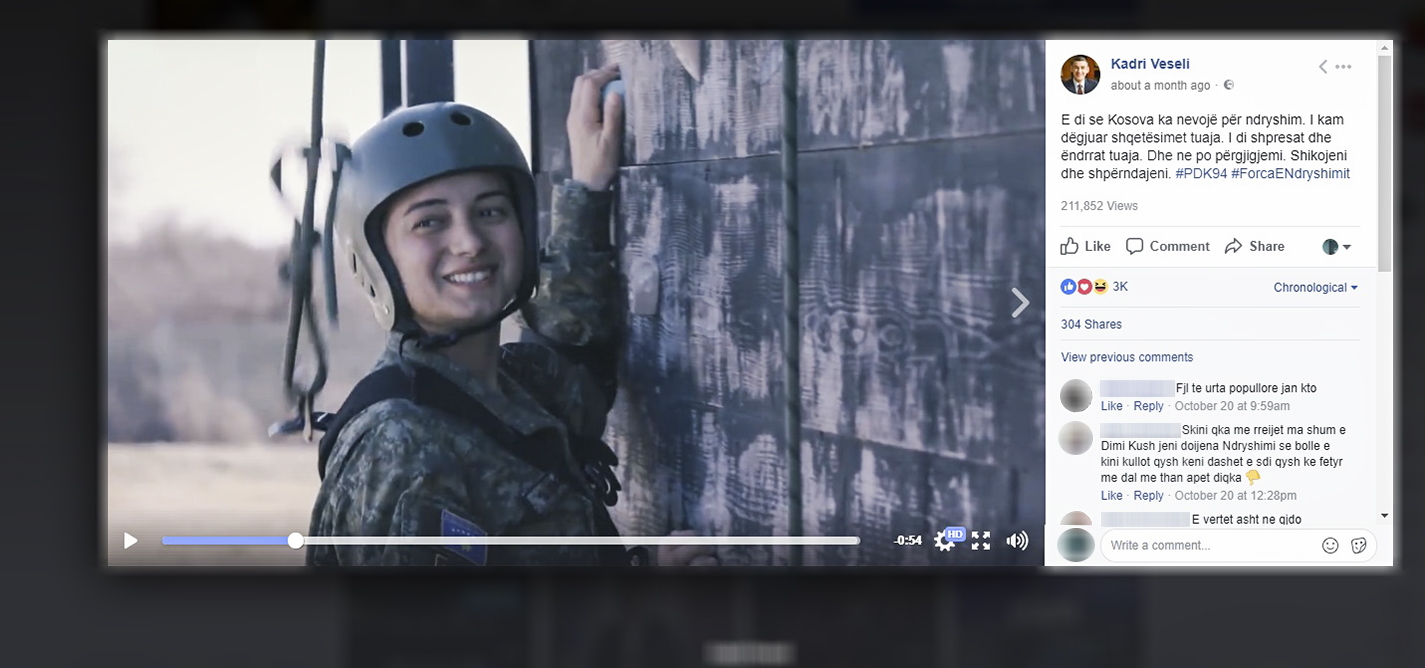
The state as a political resource
State assets still being used to achieve political aims.
"We certainly do not support the idea of political parties using KSF images for election campaigns. If this is repeated we will take a stance and take action against it.”
Ibrahim Shala, MKSFDuring parliamentary elections, the coalition PAN paid the highest amount of fines, whereas during the recent local election runoffs it was Vetevendosje.

Leonora Aliu
Leonora Aliu is a former K2.0 journalist (2017-18). She studied journalism at the University of Prishtina.
This story was originally written in Albanian.